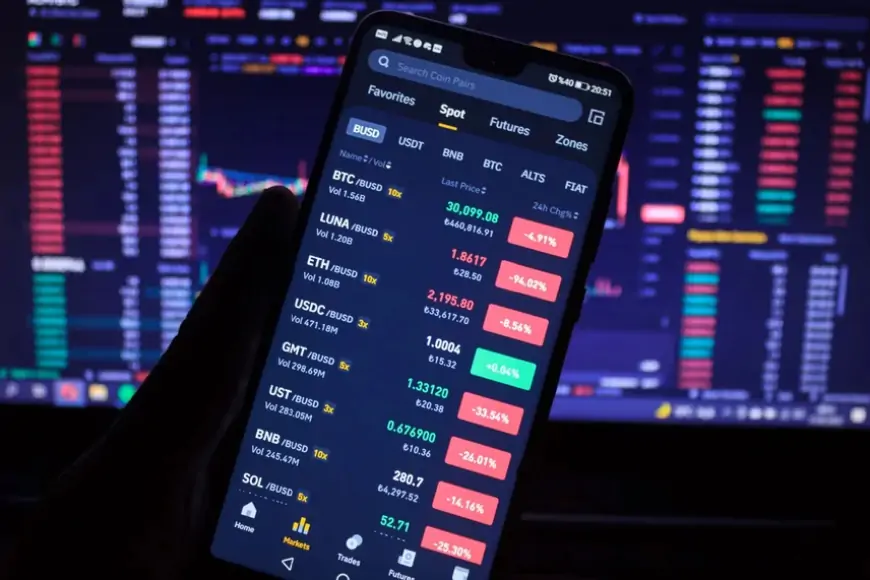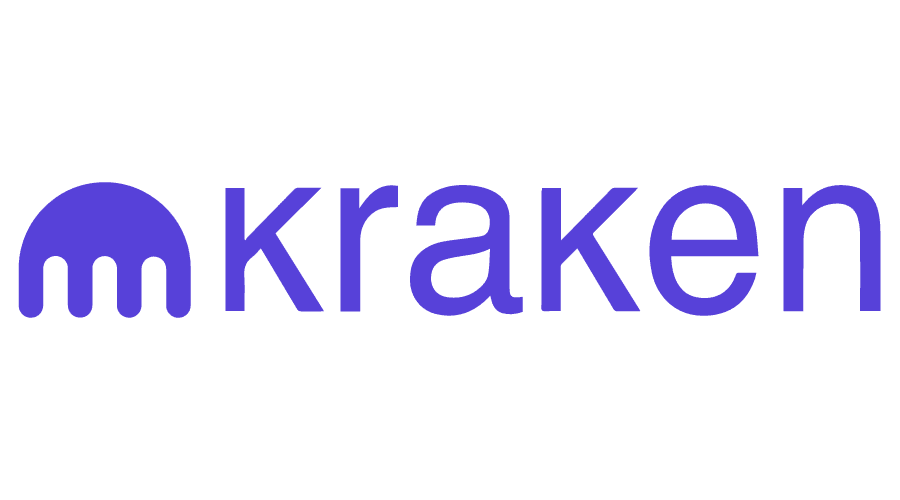Best crypto exchanges and apps for July 2024: An ultimate guide
Discover top cryptocurrency exchanges like Kraken, Coinbase, and Crypto.com. Trade, invest, and explore Bitcoin and more with secure, feature-rich platforms.

We've identified Kraken, Coinbase, and Crypto.com as standout choices among our top cryptocurrency exchange picks. We thoroughly assessed 28 platforms based on crucial factors like security, variety of offerings, accessibility, fees, financial services, features, and mobile functionality.
Similar to traditional online brokerages, cryptocurrency exchanges facilitate buying and selling digital assets. As Bitcoin surged to new record highs exceeding $73,000 in March 2024, these leading exchanges provide comprehensive tools for researching, trading, and investing in cryptocurrencies.
Beyond enabling secure transactions for digital currencies and tokens, many exchanges also offer advanced crypto investment options such as staking, lending, and digital asset custody services.
Read Digimagg's Review
We recommend Coinbase as the top cryptocurrency exchange for beginners due to its extensive selection of supported cryptocurrencies, robust security measures, and comprehensive trading features, all presented through a user-friendly interface. Additionally, Coinbase provides a seamless experience for newcomers looking to explore and invest in digital assets with confidence.
Best crypto exchanges and apps for July 2024

 Advanced trading options available
Advanced trading options available User-friendly interface suitable for beginners
User-friendly interface suitable for beginners Extensive selection of supported cryptocurrencies
Extensive selection of supported cryptocurrencies Integrated wallet services for convenient storage
Integrated wallet services for convenient storage Strong security measures, including insurance coverage
Strong security measures, including insurance coverage.png) Higher fees compared to some other exchanges for certain transactions
Higher fees compared to some other exchanges for certain transactions
Read Digimagg's Review
We selected Crypto.com as the top mobile crypto exchange app for its comprehensive ecosystem of digital asset trading and investing, accessible conveniently through smartphones.
 Offers rewards and incentives
Offers rewards and incentives Strong security measures with insurance
Strong security measures with insurance Wide variety of supported cryptocurrencies
Wide variety of supported cryptocurrencies User-friendly mobile app with advanced trading features
User-friendly mobile app with advanced trading features Additional services like staking, lending, and crypto debit cards
Additional services like staking, lending, and crypto debit cards.png) Higher transaction fees
Higher transaction fees.png) Occasionally slow customer support response times
Occasionally slow customer support response times
Read Digimagg's Review
Gemini stands out as our choice for the crypto exchange with the highest security standards, boasting robust protocols, insurance coverage for user funds, and SOC 2 certification. These features ensure a secure environment for trading and storing cryptocurrencies, providing peace of mind to users concerned about safeguarding their digital assets. Gemini's commitment to security extends across its platform, making it a reliable choice for both novice and experienced cryptocurrency investors alike.

 Supports a variety of cryptocurrencies
Supports a variety of cryptocurrencies Strong security with insurance for user funds
Strong security with insurance for user funds SOC 2 certification for stringent security standards
SOC 2 certification for stringent security standards User-friendly interface catering to both beginners and advanced traders
User-friendly interface catering to both beginners and advanced traders.png) Higher trading fees
Higher trading fees.png) Limited selection of altcoins and tokens compared to larger exchanges
Limited selection of altcoins and tokens compared to larger exchanges
Read Digimagg's Review
BitMart is selected as our top choice in the best for altcoins category due to its wide accessibility, enabling users from over 180 countries to trade a vast selection of over 1,500 cryptocurrencies. This extensive offering ensures that investors have access to diverse altcoin options, catering to varying investment preferences and strategies worldwide.

 Competitive trading fees
Competitive trading fees Extensive selection of over 1,500 cryptocurrencies
Extensive selection of over 1,500 cryptocurrencies Supports various trading pairs and offers liquidity solutions
Supports various trading pairs and offers liquidity solutions Global accessibility, serving users from over 180 countries
Global accessibility, serving users from over 180 countries.png) Customer support may be inconsistent
Customer support may be inconsistent.png) Security concerns have been raised in the past
Security concerns have been raised in the past.png) Limited fiat currency support compared to larger exchanges
Limited fiat currency support compared to larger exchanges
Read Digimagg's Review
Kraken's Kraken Pro, known for its professional-grade trading capabilities, is our top recommendation for the best low-fee exchange due to its competitive fee structure in the cryptocurrency exchange market. It is particularly favored among experienced traders for its advanced order options, as well as its support for margin trading and futures contracts.

 Competitive trading fees.
Competitive trading fees. Strong reputation for security
Strong reputation for security Extensive cryptocurrency selection
Extensive cryptocurrency selection Advanced trading features like margin and futures
Advanced trading features like margin and futures.png) Slow customer support at times
Slow customer support at times.png) Limited deposit and withdrawal options
Limited deposit and withdrawal options.png) Complex user interface for beginners
Complex user interface for beginners.png) Occasional downtime during market volatility
Occasional downtime during market volatility
Are cryptocurrency exchanges worth using?
Using a crypto exchange is highly recommended if you're considering purchasing cryptocurrencies. While buying Bitcoin from a local ATM may offer convenience for small transactions, using an exchange becomes more practical for larger investments or diversifying into various cryptocurrencies.
Crypto exchanges provide a secure and legitimate way to acquire digital assets, offering several advantages:
- They facilitate online or mobile app-based buying and selling of cryptocurrencies, ensuring convenient access to crypto markets globally.
- Most exchanges offer a wide array of digital currencies and tokens, enabling investors to build diversified portfolios.
- Top exchanges prioritize security by storing user funds in cold storage to safeguard assets.
- They adhere to regulatory requirements such as KYC/AML and financial regulations, ensuring users are protected from fraudulent activities and illicit market practices.
How to select the best crypto exchange
When choosing a crypto exchange that suits your requirements, consider several key factors. Here are the most critical aspects to evaluate:
- Supported assets: Before selecting an exchange, check which cryptocurrencies beyond Bitcoin it supports. Some platforms offer a wide range of assets, while others have limited options.
- Payment methods: Exchanges typically support various funding methods, including wire transfers, credit cards, debit cards, and digital payments. Choose one that aligns with your preferred payment method.
- Fees: Research the fee structure of crypto exchanges carefully, including trading fees, withdrawal fees, and any other transaction costs that may apply, as these can impact your investment returns.
- Security: Due to the risk of cyber theft, prioritize exchanges with robust security measures to safeguard your digital assets.
- Customer service: Opt for an exchange with responsive customer support, especially if you're new to cryptocurrency investing and may need assistance.
- Reputation: Before signing up, investigate the exchange's reputation through customer reviews, historical performance, and recent news to ensure reliability and trustworthiness.
Registering for a cryptocurrency exchange account
Opening an account on a cryptocurrency exchange is similar to registering for an online brokerage account. Here are the general steps involved:
- Account creation: Start by providing an email address and creating a password. You'll receive an email to verify ownership of the provided email account.
- Submit personal information: Enter your full name, address, and mobile phone number. Additionally, upload a government-issued photo ID like a driver's license or passport.
- Identity verification: Some exchanges may require additional verification. This often includes submitting a photo of yourself holding the ID document via webcam or phone.
- Fund your account: Once verified, fund your account using available funding methods. This allows you to begin buying and selling cryptocurrencies.
Verification times can vary from minutes to several days, depending on the exchange and required verification level. Exchanges typically offer different verification tiers with varying information requirements and associated deposit/withdrawal limits.







































.png)








